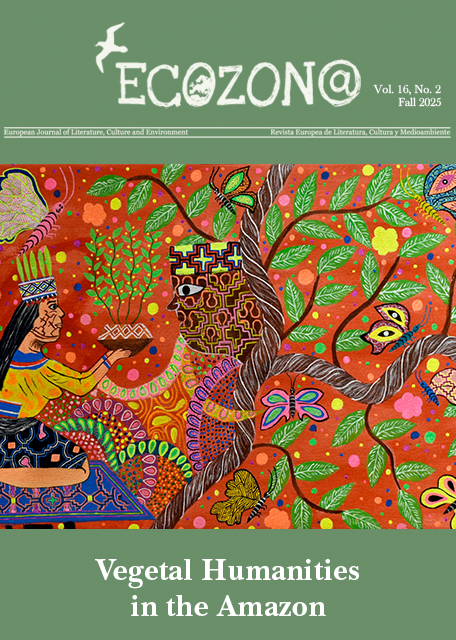Chinese Science Fiction in the Anthropocene
DOI:
https://doi.org/10.37536/ECOZONA.2021.12.1.3527Schlagworte:
Liu Cixin, science fiction, China, Anthropocene, environmental crisisAbstract
A green future has become a central promise of the Chinese state and the environment is playing an increasingly important role in China’s bid to promote itself as a political alternative to the West. However, Chinese state environmentalism and its promotion of “ecological civilization” (shengtai wenming ? ??? ) have so far proven more aligned with political interests rather than environmental goals. At the same time, low -orbit industrialization as a response to the climate change or the resurgent fantasy of p opulation control as a necessity from the standpoint of biology in environmentalist discourse are increasingly entangled with anxieties and speculations about Chinese visions of the future. Using Liu Cixin’s short story The Sun of China ( Zhongguo taiyang ???? , 2001) and the 2019 blockbuster science fiction movie The Wandering Earth ( Liulang diqiu ???? ) by Frant Gwo as its point of departure, this paper discusses how current narratives of the Anthropocene are reflected and negotiated in Chinese science fiction. While both works demonstrate the symbolic and economic importance of science and technology to China’s growth and self-image, they also reveal that we cannot separate questions of the planetary from the historical contexts, in which they emerge.
Downloads
Downloads
Veröffentlicht
Ausgabe
Rubrik
Lizenz
Authors who publish with this journal agree to the following terms:
a) Authors retain copyright and grant the journal right of first publication with the work simultaneously licensed under a Creative Commons Attribution License that allows others to share the work with an acknowledgement of the work's authorship and initial publication in this journal (CC BY-NC for articles and CC BY-NC-ND for creative work, unless author requests otherwise.
b) Authors are able to enter into separate, additional contractual arrangements for the non-exclusive distribution of the journal's published version of the work (e.g., post it to an institutional repository or publish it in a book), with an acknowledgement of its initial publication in this journal.
c) Authors are permitted and encouraged to post their work online (e.g., in institutional repositories or on their website) prior to and during the submission process, as it can lead to productive exchanges, as well as earlier and greater citation of published work (See The Effect of Open Access).










